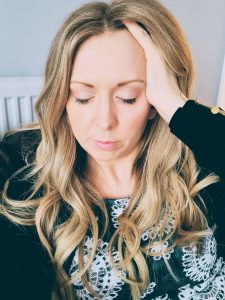Let’s Talk About Sleep

Sleep doesn’t matter. Would any of you agree with that?
Yet the interesting thing is, for most of us, our behaviour suggests just that. We don’t prioritise it.
Who Should Read This
This article isn’t just for those who would identify as having insomnia. Even if you think your sleep is ‘about average’ and you are coping ‘just fine’, I would encourage you to read ahead. You may just be surprised.
Taking on board some of the advice and tips here could actually result in an improvement in your physical health and your emotional and mental wellbeing. It may improve your productivity, your concentration and your memory. It could reduce stress and anxiety, improve mood and restore energy levels. Have I got your attention now?
Here’s a shock
What if I were to tell you that even if you think you’re getting sufficient sleep just now, you probably aren’t? That’s because the average amount of sleep that our population is getting has been gradually reducing year on year. But although this continues to decline, the need that we have as humans for sleep has not changed. We’ve not evolved past the amount of sleep we need,
By comparison, you may think that you get about the same amount of sleep as most people you know, but (NEWSFLASH) that does not mean that you get sufficient or optimal sleep. You may think that you function ‘just fine’ on five, six, or even seven hours of sleep. I’m here to tell you that simply isn’t true.
Even a small shortage in your average required sleep can actually have quite a large detrimental effect on you. There are studies which have shown that this may have wide-ranging effects such as impact on cardiovascular, endocrine, immune and nervous systems!
Are you sure you are not drunk?
Not only that, I remember being very struck when I read one particular book on the topic of sleep, and they cited a study that looked at the reaction times of people who had only a very short amount of deficit of optimal sleep. So in other words, people who were probably considered to be ‘typical’ who would not identify as having a sleep problem.
The results were shocking. The reaction times were impacted significantly by just that average of one hour less sleep than what was needed. To the extent that their reaction times were very similar to those that had been under the influence of alcohol!!
You may well be able to argue that you function ‘just fine’ with a bit less sleep than what is recommended. But, although you function just fine, that does not mean that’s what’s best for you or what is optimal. In fact, based on the results of this study, it may be having more of an effect than you think.
Would you like to be healthier, happier and perform more optimally?
I’m sure many of us would say yes to at least some if not all of those. If you said yes to any of these, then there is one very, very simple thing to try first. Prioritise trying to get enough sleep.
For every single client that I work with, whether it be therapy or coaching clients, I always ask about their sleep. No matter what we are working on. This is because it is a fundamental and foundational aspect of your life. Small tweaks to something as simple as your sleep habits can actually equate to quite a big difference in your life. Many of my clients have fed back that even when they’ve been sceptical at first, the simple act of working on improving sleep results in very positive changes in a short space of time.
So how much sleep do I need?
Now, the average person requires, as we know, about eight hours of sleep in order to be healthy, happy and to really support our bodily and mental functions. Now, although that’s the average and this is generally what most people need, there are some variations in that as well to consider.
It could depend on the age. Teenagers tend to require a bit more sleep than elderly people, for example. Elderly people don’t usually need quite as much sleep. It can also depend on gender. I’ve seen some interesting studies recently that show that women actually tend to require a bit more sleep than men.
It depends…
It can also depend, on other personal factors. Some days you seem to just need more sleep than others. This could be because of health issues, changing hormones, stress, amount of exposure to daylight, exercise levels and so it goes on and on. The key to knowing how much sleep you need is to essentially evaluate how you feel the next day.
Clear confirmation you need more sleep if you are feeling particularly lethargic and tired, lacking energy, and relying on stimulants to get through your day such as coffee, tea, or sugary or fatty things. This is especially thought to be the case if you feel this way in the morning. Feeling sleepy in the morning is a clear sign that your body probably isn’t getting enough sleep and you could do with paying attention to that.
Step 1 – track it
Now, one of the very first things I suggest that people do is to start tracking their sleep. So in other words, you can’t improve it until you know currently what your sleep is like.
Even if you think it is not necessary to track your sleep, I still highly recommend doing so. I guarantee you will most likely be surprised. How much sleep you think you are getting is most likely not the case.
How to track
There are many different and simple ways to track your sleep. Find a way that works for you. Even if you just do this for one week, it can be an eye-opener and give you a starting point for making improvements. The purpose of this is just to get a true sense of how much sleep you tend to actually get on an average week.
There are lots of apps out there that can help you. I know many of us also have smart watches which allow us to track our sleep too. There are debates about the accuracy of these, as it very much depends on the technology being used to monitor your sleep. However, using something is better than nothing.
You can keep it simple
Rather than using technology, there is a very simple, back-to-basics, way. Keep a notepad and pen next to your bed. Take note of when you go to bed, when you think you got to sleep, roughly what time you’ve woken up, and when you rose out of bed.
It is important to not only note the duration of sleep but also rate the quality of sleep. Take note of how you are feeling the next day. How was your energy that day? How was your mood? That should give you a little bit of insight into the amount of sleep you are getting and how it is affecting you.
Tracking your sleep can be a really helpful starting point to figure out if you are indeed getting enough sleep or not. It is hard to argue with the numbers. If you are getting enough sleep, congratulations, you are in the minority of the population!
You can also oversleep
Some have the opposite problem of oversleeping. Getting too much sleep is just as problematic as not getting enough. Once you have tracked your sleep for a week, you can identify if you are under-sleeping, oversleeping, or just right. Then you can start to make a plan to improve things.
Start improving things
Let’s use an example: L gets, on average, about two hours less sleep than they ideally should. If their usual time to go to bed is midnight, they may try and aim for heading to bed by 10 pm as their end goal. It is not a good idea to jump straight to going to bed 2 hours earlier, as chances are they will not be able to sleep. So L may start bringing their bedtime back by 10 minutes every 2-3 nights until they finally reach the desired end point. This allows their body to gradually adjust to the change.
In planning any changes to sleep you will of course need to factor in any lifestyle factors specific to you, so you can be realistic following your new plan. The best thing to do is to make small changes at a time.
Wind things down
Whatever your bedtime routine is going to be, I always recommend having a bit of a wind-down routine. Stick to doing the same things in the same order every night. That helps your brain to essentially get the signal that it’s time to start the shutdown processes. This means that it allows the chemical processes to start happening in your brain, in order to shut down for sleep.
No screens
Having a rule about no screens at least an hour before bedtime is also extremely helpful. That includes phones, I’m afraid.
Phones and screens stimulate the brain too much and can prevent the chemical shutdown process that we need to happen in order for us to fall asleep.
Look out for our next article for more helpful tips
I hope this article has been helpful in highlighting the importance of paying attention to your sleep and prioritising making improvements. Such a seemingly small thing can make a big difference.
Make sure you look out for our upcoming article, which will give more practical tips on how to help improve your sleep.
Dr Clare Stone
Senior Chartered Coaching Psychologist
